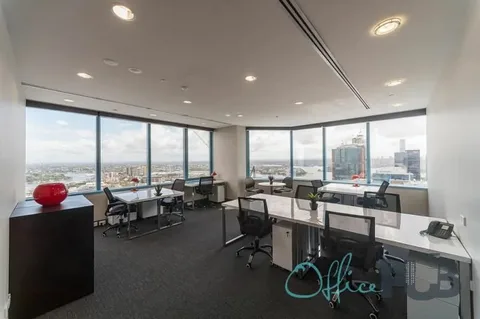The Advantages of Coworking Offices for Remote Workers and Freelancers
- Admin

- Dec 25, 2024
- 3 min read

Coworking offices have taken off in the last few years as the housing venue for most remote workers and freelancers. With many professionals who do their jobs entirely as independent workers or from home, the demand for flexible, collaborative, and completely equipped space is sky-high. It is what coworking offices have changed in the working style of freelancers and remote workers, offering many benefits beyond that of the home office. The article will open up some issues that make coworking offices necessary for today's up-and-coming mobile workforces.
Enhanced Opportunities for Collaboration and Networking
Co-working spaces become a place where remote workers and freelancers hold opportunities to network and collaborate with others on this journey. Different from the seclusion of working from home, these spaces allow for interactions between people of various professions who can bring ideas to the table and work together.
Diversity in Networking:
Coworking offices embrace professionals from all industries, generating a melting pot of expertise. It opens venues for new partnerships, potential customers, and collaborations.
Greater Exposure:
Joining organised events like networking, workshops, or informal coworking space meetups gives remote workers a chance to know more about the kind of people associated with them.
Business Growth and Innovation:
These spaces encourage creative exchanges that birth new ideas and solutions. They facilitate people's professional growth and their businesses' growth.
Cost-Effectiveness and Flexibility
Coworking offices are so cost-effective and flexible that they make perfect alternatives to workplaces for remote employees and freelancers. They provide basic and short-term premises for a low-cost option for these men and women.
All-Inclusive Charges:
Joining a coworking office and its membership fee would cover high-speed internet access, meeting rooms, and office equipment-not to mention the expenses incurred in renting them all out separately in a traditional office set-up for availability.
Flexible Leasing Terms:
Flexible Leasing Terms: Rent charges in a coworking space vary according to the time you spend in the space, from hours to months, thus reducing overheads for freelancers and remote employees who will not have to pay for space they don't use.
Resource Allocation:
Coworking is cheap enough for freelancers and remote workers, as it saves cash for other business priorities such as marketing, software tools, or professional enhancements.
Structured Work Space to Improve Your Productivity
Remote workers and freelancers can find an environment that is structured and professional, helping them to improve their focus, ensuring that fewer distractions occur, and addressing one of the serious issues- for example, the work-from-home experience.
Work-life Separation:
Coworking places create boundaries and separate work from home life for remote employees, delivering greater focus and productivity.
Equipped Workspace:
These places are provisioned with all the necessary tools, such as meeting rooms for client calls and high-end printers, and thus allow easy workflow and save freelancers from having to invest in expensive equipment.
Community and Motivation:
Remote work is more productive at the same time. It encourages them to stay professional because a community of like-minded influencers surrounds these professionals, as they know that sharing a common work culture and peer influence.
Conclusion
The coworking offices have become game-changers for people working remotely or freelancers, offering several benefits to improving factors in one's work life. There is more networking and collaboration and cheap flexibility, which comes with short-term leases; the coworking spaces are made for everything that is changing and new in the lives of today's independent workforce.








Comments